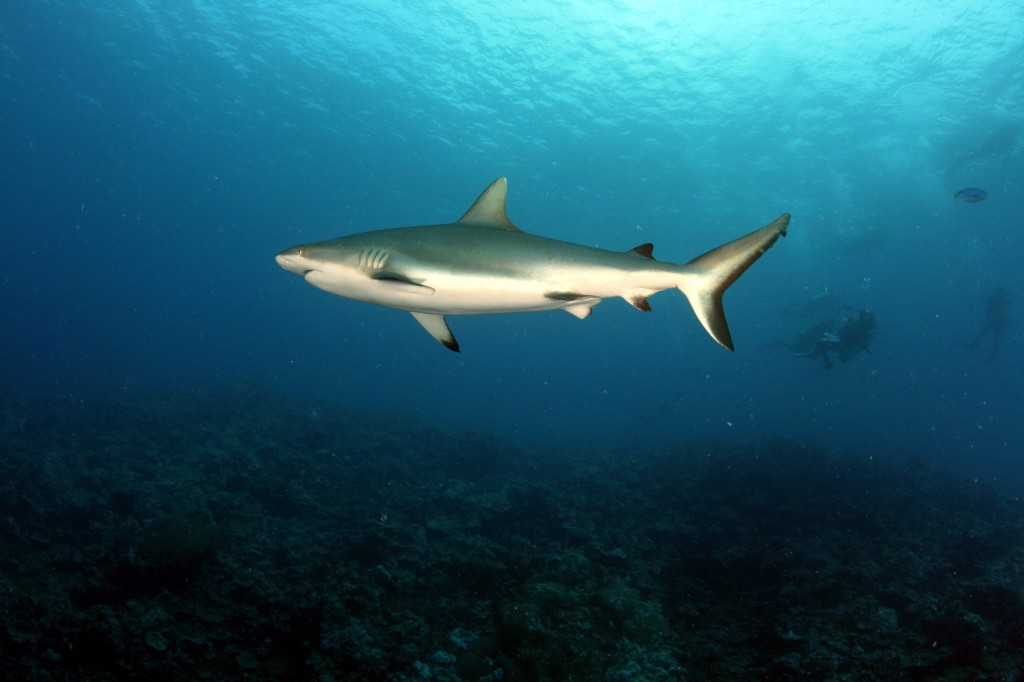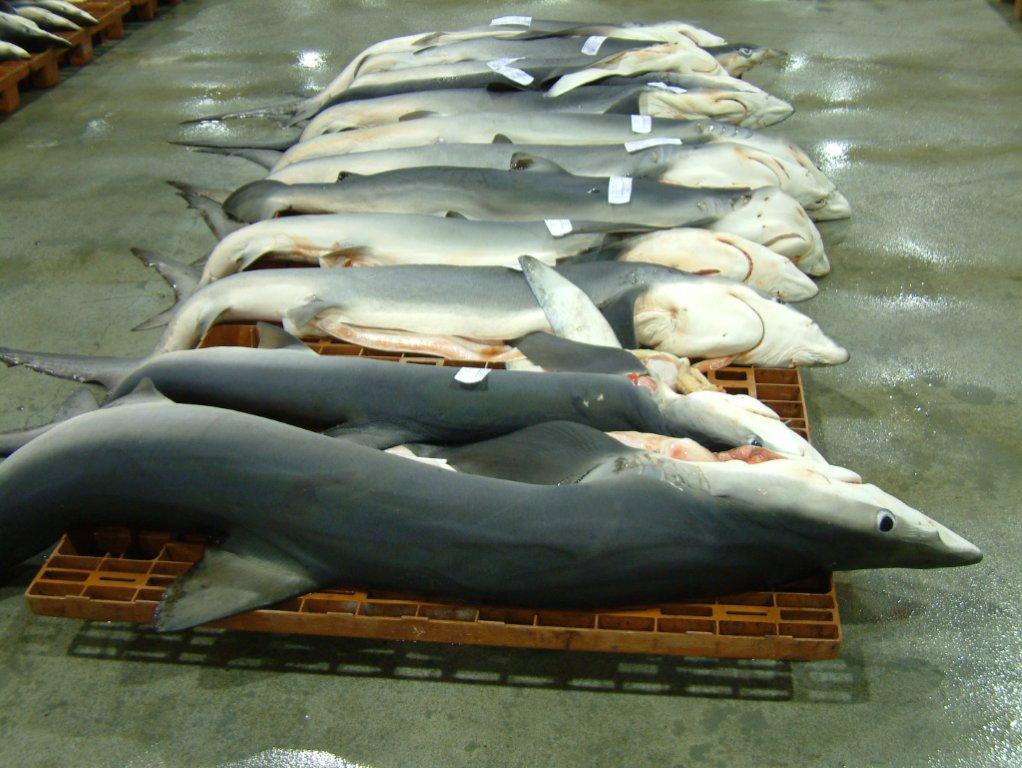BOURNEMOUTH (UK)- They help balance the ecosystems in the ocean, and can possibly help with a cure for cancer. Now they sharks also turn out to play an important role in preventing climate change, so say scientists of the British Bournemouth University. ‘Overfishing and shark finning may result on more greenhouse gasses and increased climate change.’
Researchers from the Department of Life and Environmental Sciences, along with a team on international co-authors, have shown that poor management of the oceans, including overfishing and shark finning, may have an adverse effect on climate change.
The paper, published this week in the journal Ecological Informatics, demonstrates the importance of protecting our oceans, and the importance of sharks in marine ecosystems.
Higher levels of carbon dioxide
The team showed that removal of top predators, including sharks, from marine ecosystems, results in higher biomass of prey animals, greater levels of respiration and as such, higher overall levels of carbon dioxide.
Dr Rick Stafford from the Department of Life and Environmental Sciences at Bournemouth University led the study. He says, “The research really demonstrates the far reaching consequences of overfishing and of barbaric practices like shark finning. We need to be much more aware of the importance of marine ecosystems and how they can affect all of us.”
Shark finning
Shark finning, the process of removing shark fins from live sharks, leading to the slow death of the marine animal, has become big business in recent years, driven by the demand for shark-fin soup in the Far East.
“The study really identifies sharks as an important part of the functioning of the marine ecosystem, not as creatures to be frightened of and persecuted,” said Elisabeth Spiers, a visiting fellow at Bournemouth University and co-author of the study.
The team believe that negative media reports on shark attacks, along with a lack of knowledge of marine ecosystems have resulted in limited public support for marine conservation.
Dr Stafford continued, “We hope that this study will help people understand the importance of the marine environment — and that protecting it can have important effects on seemingly unrelated processes such as climate change.”

Source: Science Daily


